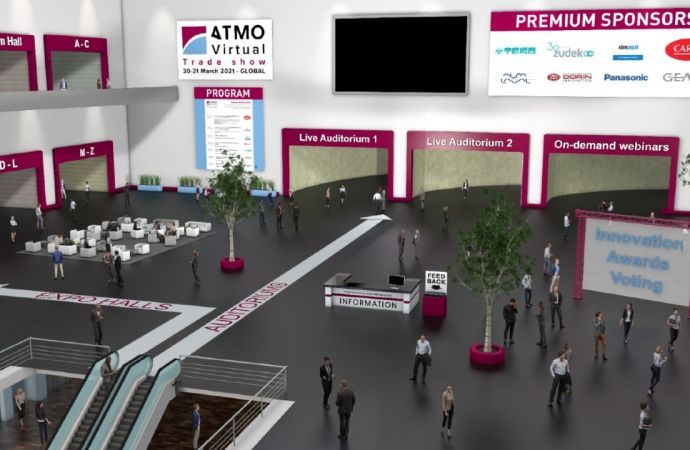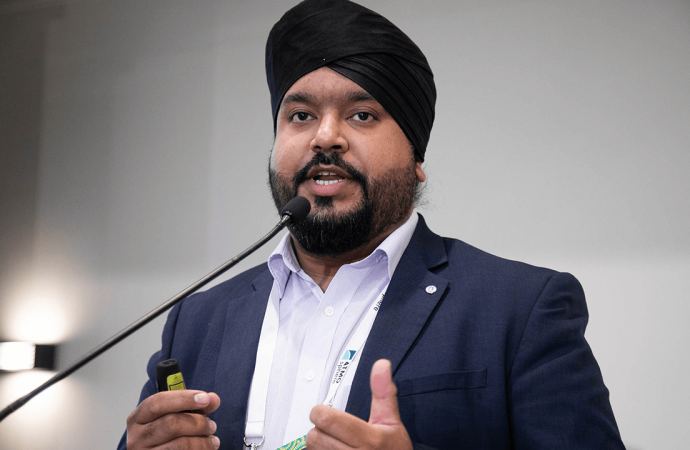Katsuhiko Harada, president of Nihon Netsugen Systems, hailed the growth potential of CO2 in industrial HVAC&R applications in Japan at this week’s ATMOsphere Japan conference.

ATMO Japan 2018: ‘CEO Interview’ session
The market for natural refrigerant CO2 is ripe for growth in Japan, particularly in industrial applications, Katsuhiko Harada, president of Nihon Netsugen Systems (NNS), told this week’s ATMOsphere Japan conference on natural refrigerants.
Asked to characterise the growth prospects for CO2 in Japan, Harada told shecco CEO Marc Chasserot on the Tokyo conference stage: “I really feel the market reaction has become different in the last two years, and CO2 has become much more interesting, especially because of Kigali.”
"It has become such an interesting topic for purely practical reasons. It has many advantages for end users including safety, environmental friendliness, the price of the refrigerant is cheap and its ability to lower temperatures so quickly,” he said.
“CO2 technology fits end user requirements.”
Nihon Netsugen Systems is the first manufacturer to begin making CO2 transcritical rack systems for industrial refrigeration in Japan itself. It opened a dedicated manufacturing facility in Shiga in December.
"From last year to this February, we have installed 50 transcritical CO2 units for industrial applications,” Harada said.
The system being produced at the factory is NNS' brand new lineup of transcritical CO2 condensing units, dubbed CO2 Booster Super Green, which debuted at the company’s launch event on 29 September.
"For the next year, we already have orders for 100 units,” he said.
"According to our calculations, we have the ability to manufacture 300 units per year. However, we must first grow our team in order to be able to provide proper support and installation work."
CO2 technology fits end user requirements.”
– Katsuhiko Harada, Nihon Netsugen Systems
Subsidies key to early development phase
Harada explained that in the first few years of introducing a new technology to the Japanese market, government subsidies play a key role in helping to build the business case with new customers.
"The subsidies are very important,” he said.
“With 90% of our natural refrigerant projects, the end users have received subsidies. Only then does the price become competitive with Freon systems.”
Though Harada acknowledged the importance of the subsidies, he also emphasised the responsibility that NNS has, as a system manufacturer, to lower costs as much as possible.
“Of course, we are also focused on cost reduction and I need your help," said Harada, speaking to the technology suppliers in the room.
He ended the session by encouraging those in the room to travel outside of Japan to learn about what is happening in the world.
"In Japan, we seem to suffer from the Galapagos Syndrome,” said Harada, referencing the idea that Japan’s technologies tend to develop in isolation.
“Of course, the situation is changing. But I think everyone should go to Chillventa to understand that the world is now changing. It is a key event and you can see very progressive technology there."
Related stories



